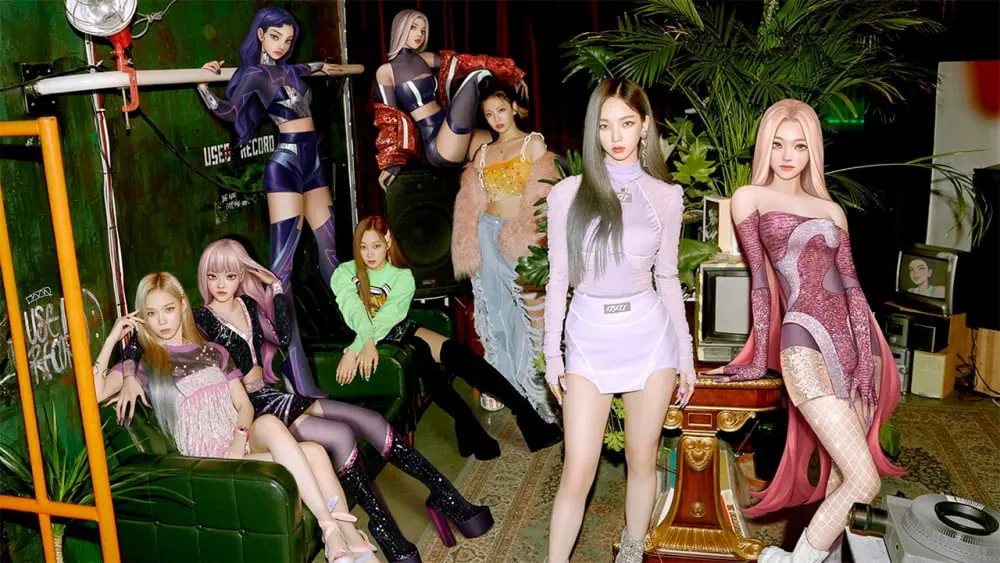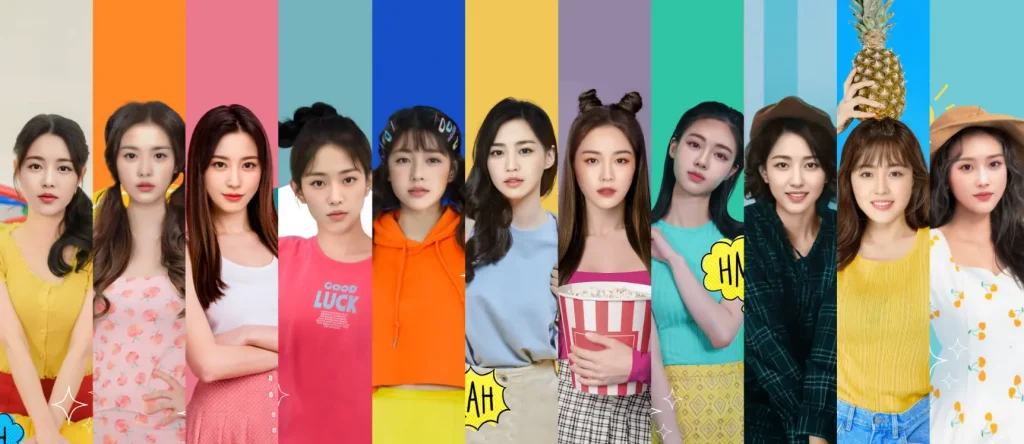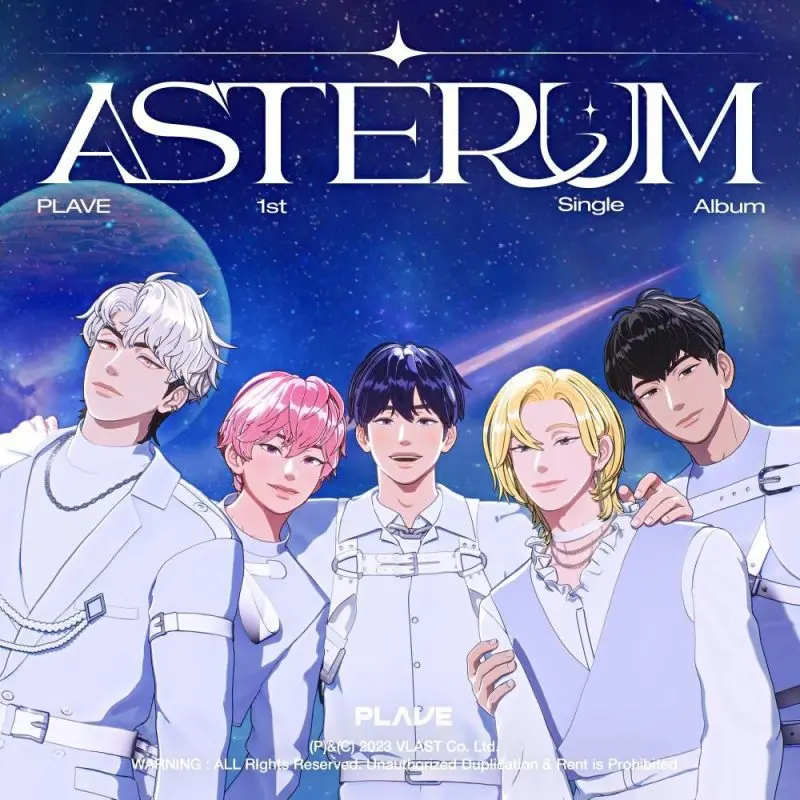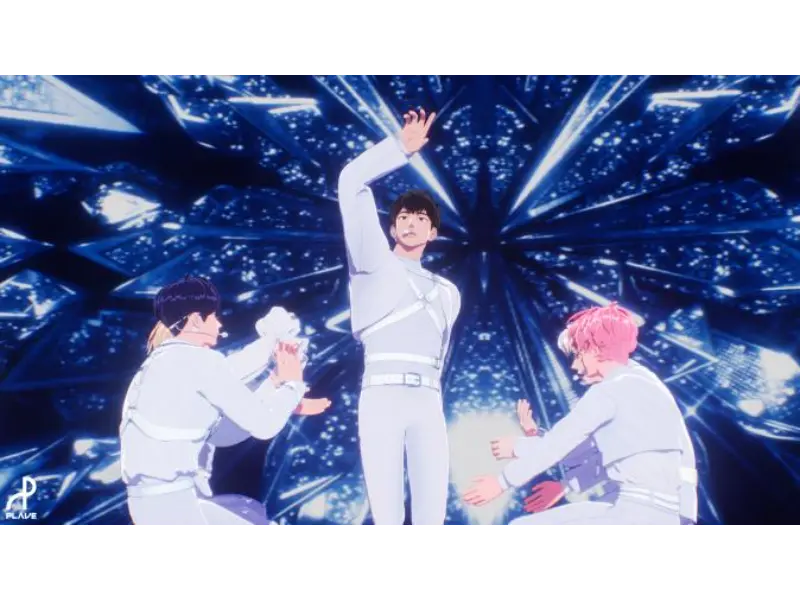- Top K-pop labels like Hybe and SM Entertainment are using AI to craft virtual idols, transforming the music scene.
- AI stars, such as PLAVE and MAVE, redefine entertainment with customizable traits, challenging traditional authenticity.
- Concerns arise with the rise of AI composers, prompting calls for stricter regulations to address copyright issues in the music industry.
Iconic US rock band KISS recently announced that they will ‘live on’ in the form of digital AI avatars. But in Korea, this trend for digitizing artistry is already hitting its stride.
Supplemented with Artificial Intelligence (AI), the vibrant world of K-pop stands apart. Industry leaders including heavyweights like Hybe and SM Entertainment are making substantial investments in this paradigm-shifting technology. Notably, the introduction of AI stars, exemplified by groups like PLAVE and MAVE, is dynamically restructuring the terrain of the entertainment industry.
The AI battle among K-pop giants
The visionary mind behind the globally acclaimed boy band BTS, Bang Si-hyuk, who also serves as the Chairman of Hybe, recently disclosed that AI is becoming a pivotal factor in shaping the company’s operational and strategic landscape. This revelation comes on the heels of Hybe’s ambitious Midnatt project, launched in May, where the male artist Lee Hyun, operating under the pseudonym Midnatt, released the song “Masquerade.” What makes this release groundbreaking is the utilization of AI to provide six different language versions of the song, catering to a global audience.

The Midnatt project is a collaborative effort between Hybe’s interactive media division, Hybe IM, and the AI audio technology startup Supertone, which Hybe acquired for a substantial sum earlier in the year. Chung Woo-yong, the CEO of Hybe IM, stated in May, “We are trying to leverage AI without distorting the artist’s voice and information.” Furthermore, Hybe plans to extend its foray into AI collaborations, hinting at future collaborations with other artists under the Hybe umbrella.
Not to be outdone, SM Entertainment, a stalwart in the South Korean music industry with artists like NCT and Aespa under its wing, is also embracing the AI revolution. The company has unveiled plans to introduce Naevis, a virtual singer generated through artificial intelligence, by the year 2024. Naevis, already familiar to many K-pop enthusiasts through appearances in Aespa’s promotional content, represents SM Entertainment’s commitment to pushing the boundaries of AI in the creation of virtual idols.

The paradigm shift is evident not only in established entertainment agencies but also in emerging virtual groups. Eternity, also known as Iiterniti, is a virtual girl group comprising 11 members that made their debut in 2021 with the single “I’m Real.” Notably, the group held its first solo concert in South Korea in October, marking a significant milestone in the acceptance of virtual entities in the traditionally human-dominated world of live performances.

Also read: YouTube tests AI tool that mimics famous singers with select creators
AI idols vs. real idols
Infinite customization and plasticity
One of the key differentiators between AI idols and their human counterparts lies in their infinite customizability and plasticity. Real idols are shaped by their unique charm and personal experiences, while virtual idols can be molded entirely according to the designer’s intentions. Whether in terms of appearance, personality, or talent, AI idols can be tailored to meet the diverse demands of different audience segments, providing a more personalized and engaging experience for fans. Every can generate K-pop voices through AI technology, such as the TopMediai K-pop Text-to-Speech AI Voice Generator introduced by TopMediAI. By combining the generated voice with a virtual persona created by AI, one can essentially craft their own AI star, achieving a tailored idol experience akin to creating a character in a video game.
Diverse expression and skills
AI idols boast a myriad of expressions and skills facilitated by AI technology, enabling them to sing, dance, act, and even engage in interactive experiences within virtual and augmented realities. While real idols offer authenticity and emotional resonance in their performances, AI idols bring creativity and imaginative possibilities to the entertainment domain. However, real idols maintain a unique charm with their genuine emotions and real-life experiences, a facet that AI idols may struggle to fully replicate.
Enhanced interactivity and sociability
AI idols exhibit heightened interactivity and sociability through social media platforms, online events, and virtual reality experiences. This engagement enhances the sense of connection and loyalty among fans. While AI idols provide immersive experiences in virtual worlds, real idols offer the irreplaceable charm of face-to-face interactions and personal touch. Just as the lyrics in PLAVE’s debut song “Wait for You” sing, “I hope I can be by your side, so I can reach out to you.”

The advantages of AI stars
AI stars come with distinct advantages over their human counterparts. Chief among these is the absence of scandals and ethical concerns. AI stars, being products of artificial intelligence, do not engage in inconsistent behavior, are not driven by personal interests, and are immune to the pitfalls that can beset human idols. This makes AI stars the “scandal-free” idols, a quality reminiscent of the fan loyalty seen in fandoms dedicated to anime and novel characters.
From the perspective of talent agencies, AI stars also present economic advantages. Their maintenance is not marred by the physical toll of aging or the uncertainties of an artist’s career trajectory. In contrast to the potential decline in popularity faced by real idols as they age, AI stars remain perpetually at their peak, reducing the long-term risks associated with managing a human talent.
“Our goal is to create fully AI-driven virtual humans (that are) really believable. There are some things I cannot tell (even my best friends), but maybe I could tell a personalized AI, which can comfort me and care about me, I think it’ll be good for everybody.”
Kang Sung-ku, chief technical office from Metaverse Entertainment
Pop quiz
How many member does Eternity have?
A. 10
B. 9
C. 8
D. 11
The answer is at the bottom of this article.
The future of AI stars
As technology continues to evolve, the landscape of virtual idols is expected to undergo further transformations. The integration of AI into the music creation process is poised to open new frontiers, offering unique and innovative possibilities for the entertainment industry. The operational costs of AI stars, significantly lower than those of real idols, pave the way for increased accessibility and participation.
The rise of AI stars is viewed not as an invasion but as a new entrant to the celebrity landscape. AI stars are not positioned to replace real idols but rather to coexist, compete, and collaborate on a new stage within the entertainment industry.
In a dazzling conclusion to their illustrious 50-year career, iconic rock band KISS staged their final live performance at Madison Square Garden on Saturday, marking the culmination of a four-year global tour titled “End of the Road.” Following the show’s conclusion, the band officially disbanded, but the quartet of Paul Stanley, Gene Simmons, Eric Singer, and Tommy Thayer didn’t bid a permanent farewell to the stage. Post the rendition of their classic anthem “Rock and Roll All Nite,” the band unveiled their new digital avatars. Crafted by Industrial Light & Magic using cutting-edge facial and body performance capture technology, these avatars are not exact replicas of the original lineup but are rather referred to as “fantasy-based superheroes,” designed to “ensure their immortality.” These digital embodiments are set to continue representing the band in performances.
Despite the anticipation surrounding KISS’s digital future, a significant portion of their fanbase appears lukewarm towards the grand revelation. Most reactions on social media lean towards the negative, with fans expressing skepticism about the ability of digital entertainment to ever match the authenticity of live performances. Looking ahead, the challenge remains for AI idols to gain acceptance among fans who have a penchant for the authenticity of real-life performers.

Also read: Generative AI apocalypse? Relax, it’s more hype than reality
Challenges and concerns
The emergence of AI composers capable of creating music within minutes has raised concerns within the music industry. While critics argue that the quality of AI-generated music is yet to match that of human compositions, the rapid learning curve of AI in this domain cannot be ignored.
Music critic Kim highlighted, “Korean AI composers seem to need more exploration in terms of melody, harmony, and lyrics.” However, the Music LM model developed by Google, an AI-based text-to-music model, demonstrates the rapid advancements in this technology, capable of generating music in specific genres or atmospheres.
Organizations like the Korean Music Copyright Association (KOMCA), a non-profit music copyright entity with over 47,000 members nationwide, have voiced concerns that AI composers may disrupt the music industry. The preference for AI-produced songs due to their often free accessibility poses a threat to human composers who may struggle to compete with the rapid production capabilities of AI.
KOMCA argues that if AI composers dominate the industry, it could lead to financial instability for human composers, as their incomes would likely see a significant decrease. The lack of legal protection for human composers in the face of AI dominance poses a serious threat, potentially resulting in a technological encroachment on cultural territories.
KOMCA is calling for stricter regulations and guidelines in South Korea to address potential copyright infringement and plagiarism by AI composers. The organization emphasizes the need for clear legal frameworks to handle these issues and calls for AI developers to disclose the songs used as training data, ensuring fair compensation for copyright holders.
Also read: 9 very different ways AI is changing the world
AI stars are not poised to replace real idols but rather to coexist and compete in a new era of the entertainment industry. The advantages of AI stars lie in their reliability and absence of scandals, yet the unique charm and emotional connection offered by real idols remain unmatched. The evolving landscape prompts the industry to address legal and ethical considerations, ensuring a harmonious integration of AI into the world of entertainment. The future holds exciting possibilities as technology continues to shape the dynamics between AI and real stars.
The correct answer to the pop quiz is D.11

